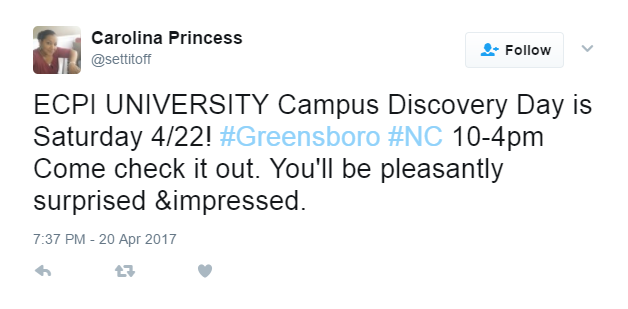How can I Become a Good Chef?
When you decide to become a chef, you don’t want to be simply a chef, you want to be a good chef. How can you use your passion for cooking and food and make yourself stand apart from those who are simply earning a paycheck? Here are some tips from some of the best chefs around the globe on how you can shine at your chosen profession.
Make the Commitment
Celebrated chef Dan Kluger believes that in order to become one of the best chefs, you need to be ready to make the commitment in terms of time spent practicing your dishes. The majority of your time will need to be spent with your books or in the kitchen. Don’t stop learning when class lets out; being a self-starter can help get you the background and technique that you want.
Start From Scratch
Another chef with a distinguished career, Eric Ripert, believes that the best way to take advantage of culinary school and become a good chef is to place your faith in the school's teachers. This means forgetting all the techniques you depended on as an amateur and starting from scratch under the teacher's guidance.
This advice also holds for when you graduate culinary school. The best way to learn the practical aspects of the food and service industry is to start at the bottom of the ladder as an assistant cook, and then work and learn the business every day to rise to the position of the head chef.
Develop a Refined Palate
School is where you learn to distinguish between the good and the bad ways of cooking and serving food, believes pastry chef and restaurateur Christina Tosi. You may have many recipes that have become your favorites since your days of amateur cooking, but those recipes might not hold up in the professional cooking world. Make an effort to get out of your comfort zone and find out the proper methods to mix and combine food products in a recipe to create a truly world-class dish that caters to the highest standards of taste.
Expand your Horizons
Executive chef Michael Ferraro believes your time in culinary school should be treated as a blank canvas. This canvas can be filled with the colors of any food specialty you desire. Don't stick too closely to any one specialty but try your hand at as many varieties within the cooking industry as possible. You may find yourself developing a passion for baking, pastry making or another discipline that you did not expect!
Put in the Work
Don't just rely on memorizing the recipes for dishes to get you through the course. In order to perfect the process of creating those dishes, you will need to practice them many times in the kitchen. The best part of the process is that, even if you make mistakes (which you will), there will be experts on hand to tell you what you did wrong and how to make the next round better.
Make Connections
The truth about cooking is that it is not enough to be a very good cook if you lack the connections. This was the blunt advice put forth by chef and restaurant owner Bradley Ogden. You may become the best chef in the world, but it won't mean anything if you don't know the people who can provide you with the platform to display your talent. Culinary school is where you will begin to make the professional connections which will carry you forward in your future professional world.
So take the opportunity that school provides you to meet lots of different people and make a good impression on everyone you meet. This good impression should include both yourself as a chef and your cooking.
Get Creative
There are a lot of chefs in the world, both professional and amateur. If you want to build your own distinct identity, you need to put your own creative spin on your dishes. This would be tricky to attempt at the beginning of culinary school, when you don't know enough about the art of mixing recipes to come up with something new. But by the time you reach the end of your time at the school, you should have accumulated enough knowledge to be able to come up with new types of dishes that you can claim as your own.
Ask Questions
A basic habit that every student should practice, is the art of asking relevant questions. Blindly accepting everything you read in the recipe books and what your teachers tell you means you will miss out on the many small complexities and details pertaining to the art of cooking which you need to understand. These details can only be understood if you take the time to ask questions. Remember, you’re not there to learn recipes by heart or go through the motions of cooking without understanding the science behind it.
Are you passionate about cooking want to take your interest to the next level? If you want to earn an Associate of Applied Science in Culinary Arts, ECPI University’s Culinary Institute of Virginia offers this degree program at an accelerated course of study. To see if this is the next step on your journey, connect with a friendly admissions advisor today.
It could be the Best Decision You Ever Make!
DISCLAIMER – ECPI University makes no claim, warranty, or guarantee as to actual employability or earning potential to current, past or future students or graduates of any educational program we offer. The ECPI University website is published for informational purposes only. Every effort is made to ensure the accuracy of information contained on the ECPI.edu domain; however, no warranty of accuracy is made. No contractual rights, either expressed or implied, are created by its content.
Gainful Employment Information – Culinary Arts - Associate’s
For more information about ECPI University or any of our programs click here: http://www.ecpi.edu/ or http://ow.ly/Ca1ya.




